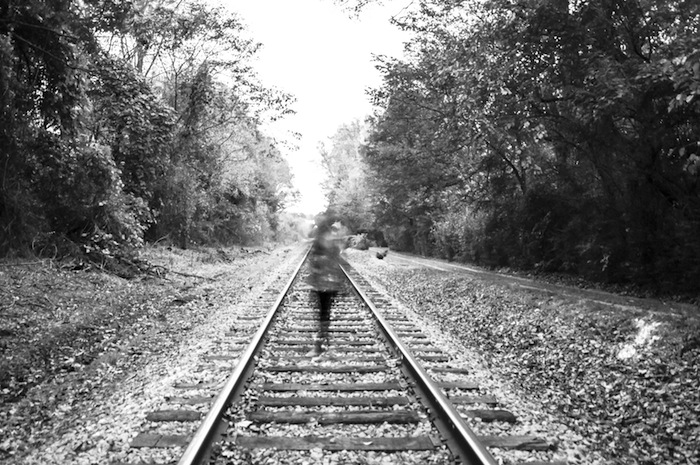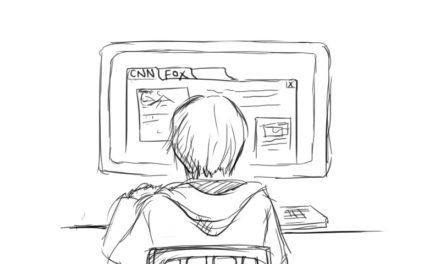Today I wished to walk as Henry David Thoreau had walked. In his book Walden, Thoreau would, as he mentioned in his essay “Walking,” “spend four hours a day at least – and commonly more than that – sauntering through the woods and over the hills and fields, absolutely free from all worldly engagements.” I left my apartment with only a notebook, camera and cellphone (silenced). I wished to spend my time walking like a camel, which Thoreau writes in “Walking,” “is said to be the only beast that ruminates when walking.” I would spend time with just my thoughts on this walk, trying to escape from the outside world, and hopefully come to an inspired conclusion.
North Decatur Road is no Walden Pond. I broke off the road in search of a different route with less commotion – I found the railroad tracks. I turned west on the tracks and walked towards the setting sun. In “Walking,” Thoreau said that he would always tend to walk west: “I must walk toward Oregon, and not toward Europe.”
The future lay that way for him and, so I thought, for me. I left the road behind me and walked until I could no longer hear the groans of the cars. The trees cut down for the laying down of railroad tracks opened space for a better view of the horizon than I had seen so far in my walk.
I walked for about 45 minutes towards a curve in the tracks, taking time to look at my surroundings. I made pictures of the changing leaves and waited for the inspiration of walking to hit me. Yet my mind seemed to concentrate on the very things I was trying to leave behind. The tracks took me around the corner and I saw a bridge ahead with graffiti on it. By this time the sun was starting to set. Once I reached the bridge, it was almost too dark to make any pictures. The bridge had a “no trespassing” sign, but I walked to the center of it and sat down.
I pulled my phone out of my pocket and engaged with it, partially out of habit, and partially out of a frustration still with feeling tied to the world I was trying to escape. As I read through the attempts of the external world tempting me through communication, it rang. I answered it. A friend was distressed; they didn’t get to the second round of their job interview. I wanted to console them, but I couldn’t, leaving my mind disappointed with the conclusion of the walk. I hung up and started the walk back.
“Half the walk is retracing your steps,” Thoreau writes in “Walking.”
The sun had completely set by this point and the tracks were difficult to see. My eyes were still adjusting to the darkness so that I had to strain to see the wooden slabs of the tracks and avoid tripping on them. As my eyes focused on my footing, my mind focused inward. I found myself thinking about the journey I was creating. Before I had concentrated on the horizon, anticipating what was around the corner, and found myself disappointed when I arrived. With my head down and focused on the immediate, I walked past the curve in the tracks, my beginning place, without even noticing.
When I stepped back into the lights of Atlanta traffic I called my friend back and told them that it’s okay that they didn’t get the job. There will be more opportunities further down the tracks. To anticipate what is around the bend may prove fruitless; it is more important to be sure of your footing.
Thoreau uses the word “sauntering” to describe his walking and remarks that the word could derive from ‘sans terre’ which he determines as meaning, “having no particular home, but equally at home everywhere.” To be equally at home everywhere is to be comfortable with the present environment and not being tied to a particular destiny. It is the present moment that is home, not the destiny at the end of the tracks. Contemplate each step of the way and walk west, or towards the future, wherever that may be.
Associate Editor James Crissman is a College senior from Graham, North Carolina.
The Emory Wheel was founded in 1919 and is currently the only independent, student-run newspaper of Emory University. The Wheel publishes weekly on Wednesdays during the academic year, except during University holidays and scheduled publication intermissions.
The Wheel is financially and editorially independent from the University. All of its content is generated by the Wheel’s more than 100 student staff members and contributing writers, and its printing costs are covered by profits from self-generated advertising sales.






